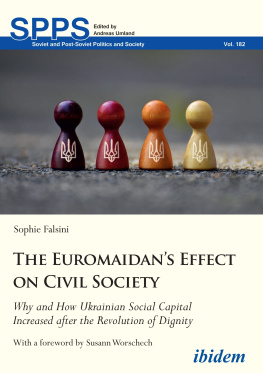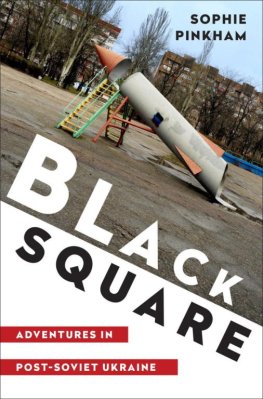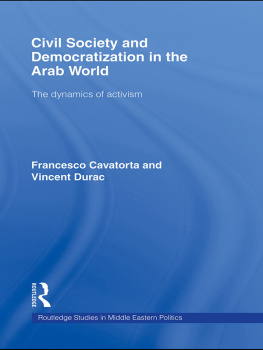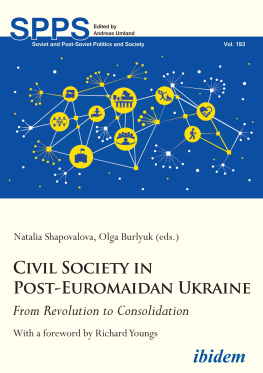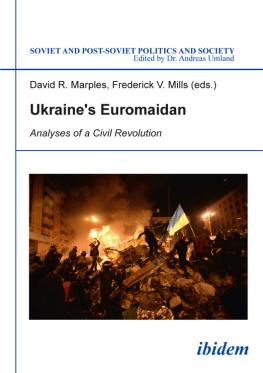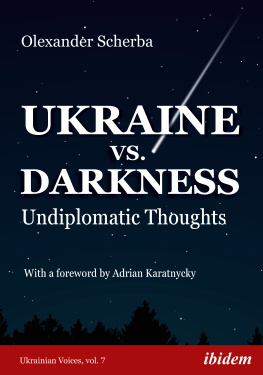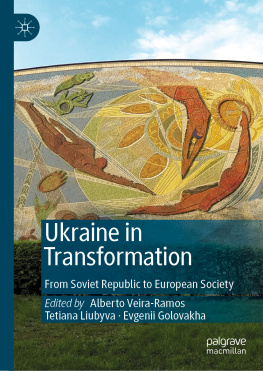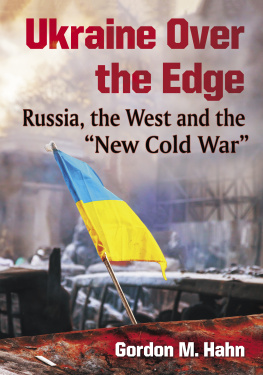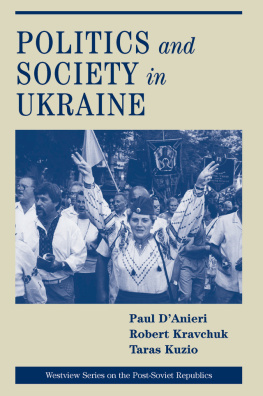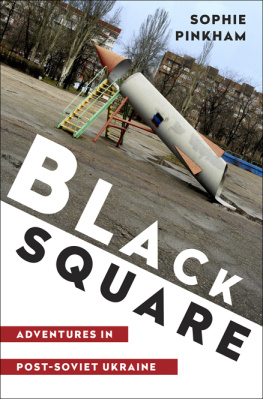ibidem Press, Stuttgart
Table of Contents
Nimm die wichtigsten Dinge. Die Briefe zum Beispiel.
Nimm die leichten Sachen, die wiegen nicht viel.
Nimm die Heiligenbilder, das Silberbesteck,
nimm die Kreuze, den Goldkram, wir gehen weg.
Nimm ein bisschen Gemse und vom Brot ein Stck,
Wir kommen nie wieder hierher zurck.
Wir werden die Stdte nicht wiedersehn.
Nimm die Briefe, auch schlimme, dann lass uns gehn.
Wir mssen die Nachtkioske verlassen.
Die Gesichter der Freunde werden verblassen.
Aus dem trockenen Brunnen ist kein Wasser zu ziehn.
Wir zwei sind Flchtling. Nachts mssen wir fliehn.
Wir laufen an Sonnenblumenfeldern vorbei.
Wir flchten vor Hunden, schlafen im Heu.
Wir gieren nach Wasser, kampieren in Lagern
Und qulen die Drachen auf Truppenfahnen.
Dir Freunde sind fort, auch du bist verschwunden.
Es fehlen die Stellen, die Kchenrunden.
Nachts fehlt in den Orten das schlfrige Licht.
Grne Tler und Brachen, es gibt sie nicht.
Schmierige Sonne gibts, die durchs Zugfenster dringt,
die Choleragrube, zu der man Kalkpulver bringt.
Die Frauenfe im blutigen Schuh,
Wachposten im Grenzschnee kommen dazu.
Ein verwundeter Brieftrger mit leerem Sack,
ein Gehenkter, lchelnd, im Priesterfrack,
Friedhofsstille, Lrm auf Kommandanturen,
Totenlisten, gedrckte, ohne Korrekturen.
Namen, endlos aneinandergereiht,
den eignen zu suchen ist keine Zeit.
(Serhij Zhadan, Warum ich nicht im Netz bin)
Acknowledgements
This book would not have been possible without the help and the support of those many people who cared for my work and its cause. Therefore, I would first like to thank my advisors Dr. Susann Worschech and Prof. Timm Beichelt for their input and their close collaboration. I am gratefully indebted to both for sharing with me their expertise and for the valuable comments on this work.
A big thanks goes to Carla Ruhrmann, who supported me throughout this journey and never backed down from providing me with constructive comments and support. My special gratitude also goes to a thoughtful neighbor, Anne Tully, for having proofread the book. Last but not least, I thank Paolo Falsini, Valeria Francescato and Alessia Pagotto for having kindly shared with me their creative skills and having made the cover photo possible.
Furthermore, I would also like to thank all my Ukrainian friends, who helped me get through bureaucracy, provided me with useful information, and facilitated my attempts to get in contact with experts on the ground.
Finally, a special word of thanks goes to all those organizations that agreed to spend some time with me despite the snowy and icy weather, and provided me with valuable insights about their organizations and the latest developments in the country. My acknowledgements go to Crimea SOS, Donbass SOS, The Salvation Army, Right to Protection, Youth Initiative of Cities, Help Dnipro, Power of the Future, Burning, Kharkiv Human Rights Protection Group, Station Kharkiv, Ukrainian Frontiers, and Adaptation-cultural Centre. It was a great pleasure to put myself in your shoes and to have the chance to get to know those who are making a difference for many people in Ukraine.
List of abbreviations
CAF: Charity Aid Foundation
CSO: Civil society organization
EC: European Commission
ECHO: European Civil Protection and Humanitarian Aid Operations
EEAS: European External Action Service
EU: European Union
GIZ: Deutsche Gesellschaft fr Internationale Zusammenarbeit
HIAS: Hebrew Immigrant Aid Society
ICPS: International Centre for Policy Studies
IDMC: Internal Displacement Monitoring Centre
IDP: Internally displaced person
NGO: Non-governmental organization
OCHA: Office for the Coordination of Humanitarian Affairs
OECD: Organization for Economic Co-operation and Development
OHCHR: Office of the High Commissioner for Human Rights
OSCE: Organization for Security and Co-operation in Europe
PCPM: The Polish Centre for International Aid
SM: Social movement
SMO: Social movement organization
UN: United Nations
UNDP: United Nations Development Programme
UNHCR: United Nations High Commissioner for Refugees
USAID: United States Agency for International Development
Foreword
With the Euromaidan protests, Ukrainian civil society did return vigorously to the center stage of political and scientific discussions. Whereas in the aftermath of the Orange Revolution, scholars predominantly emphasized the weakness of civil society and its lacking capabilities of establishing democracy, Euromaidan opened a new chapter in the study of Ukrainian civil society. In an optimistic reading, the protest turned democratic moments into a democratic movement. In a rather pessimistic reading, the sustainability of civil societys newly gained strength could be questioned. As a consequence, is highly disputed whether the evolution of the post-Euromaidan civil society implies a story of a new civic consciousness and a broader political impact than before Euromaidan. However, in-depth insights in the structure and cohesion of contemporary Ukrainian civil society and comprehensive empirical data are scarce yet. This does also apply for concepts to depict civil societys probable impact beyond the dichotomy of weak versus strong.
The analysis done by Sophie Falsini fills a gap in both theoretical and empirical regard. Not the weakness or strength of civil society, but the activists and organizations trust and cooperation patterns come to the fore. Trust and, more precisely, social capital ties groups together and enables them to get into action. In applying the social capital concept to post-Euromaidan civil society, Sophie Falsini sheds a light on the potential of action that stems from embeddedness and relations. Her study thereby goes far beyond a mereand often highly questionableimpact analysis. Ukrainian civic activists do no longer bowl alone, as it Robert Putnams metaphor for societal atomization and the subsequent decline of democracy suggested.
It remains to be seen whether democracy will increase in Ukraine alongside increasing social capital. Sophie Falsinis book will prove to be extraordinarily helpful for researchers and practitioners alike who are concerned with the development of civil society and democracy in Ukraine. Further, her study constitutes a sophisticated implementation of the social capital concept to a contemporary political phenomenon, thereby illuminating the analytical power of a strong nexus between civil society theory and aspiring empirical fieldwork. Hopefully, this book will reach a wide audience of social scientists, political analysts, members and supporters of the new Ukrainian civil society, thereby contributing to a better understanding of a probable new generation of activists and their cooperation patterns.
Dr. Susann Worschech
European University Viadrina, Frankfurt/Oder
Introduction
This book takes inspiration from the world of theories floating around the concept of social capital and, more specifically, it is thankful to Robert Putnams book Bowling alone: The collapse and revival of American community. Putnams work was published in the year 2000 and revolves around the concept of social capital, depicting its transformation and decline in American society since 1950. The reference to this book was less driven by the need to remember a well-known author, than by the necessity to introduce the idea thatfar from being obsolete or an ide passsocial capital is still a relevant and modern concept today. In particular, social capital happens to be an extremely useful tool to analyze the state of civil society in Ukraine. In fact, in contrast to the downward trend in Americas society highlighted by Putnam, Ukraine has shown steadily increasing participation rates in civil society organizations since the end of 2013. Consequently, rather than Bowling alone: The collapse and revival of American community, a much more representing title for Ukraine would be Bowling together: The increase of social capital in Ukrainian civil society. Indeed, given the interest many Ukrainians demonstrated for joining formal as well as informal associations and engaging for the well-being of the country, social capital seems to have gained back its forgotten value. And this unexpected and prompt development of civic mobilization is also the precise reason why Ukraine, rather than any other country, lies in the focus of this book.

